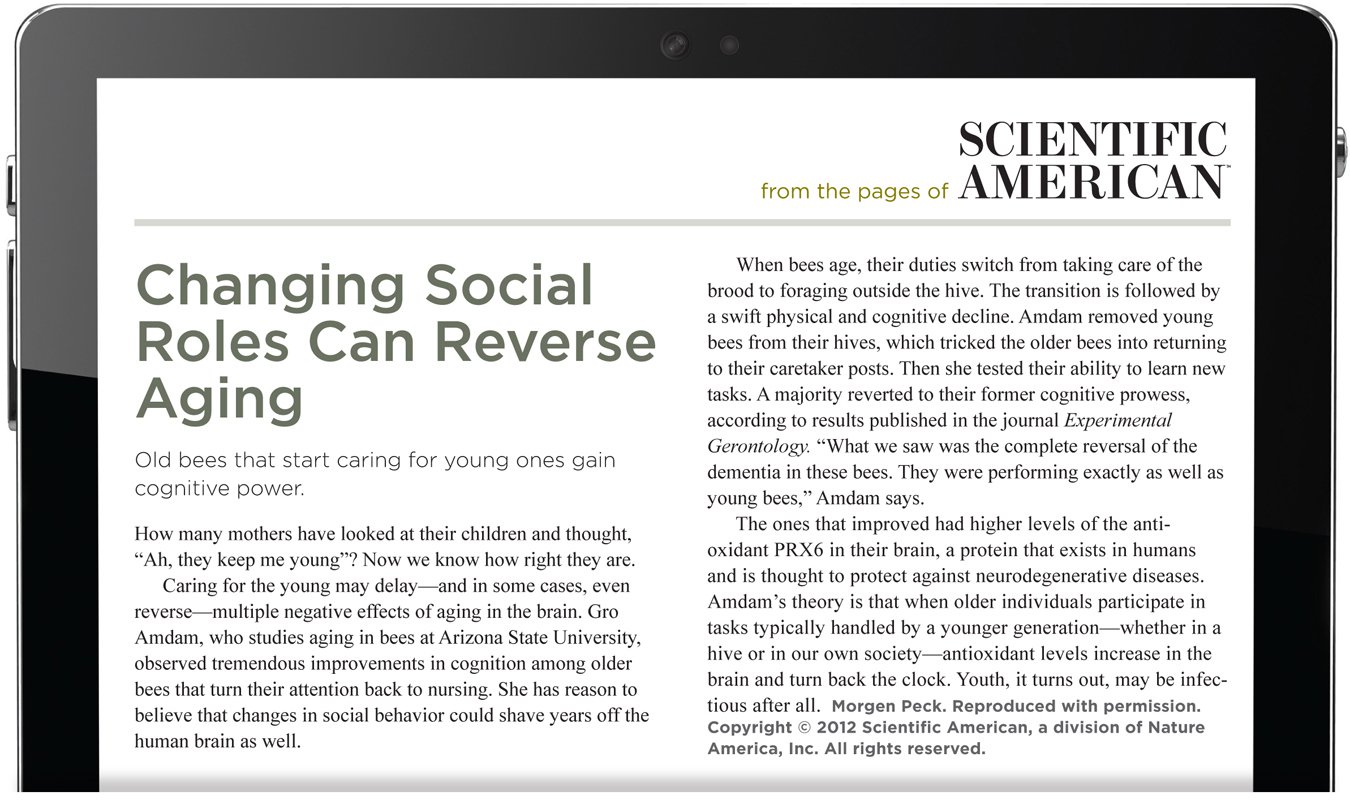Chapter 1. Chapter
Article
From the Pages of Scientific American
Changing Social Roles Can Reverse Aging

Click the image to enlarge. Click "Next" to continue.
1.1 Quiz
1. The idea that social roles can affect the biological outcomes of aging in the brain most closely reflects which broad perspective in psychology?
| A. |
| B. |
| C. |
| D. |
2. Amdam’s work indicates that a specific kind of ____________ is the substance that “turns back the clock” on aging’s effects on the brain.
| A. |
| B. |
| C. |
| D. |
3. In Amdam’s study, she took older bees who were foraging and forced them to take over nursing duties. How did she know that the older bees’ cognitive function had returned?
| A. |
| B. |
| C. |
| D. |
4. What is the hypothesized role of PRX6 in the human brain?
| A. |
| B. |
| C. |
| D. |
5. Let’s imagine that someone argued that Amdam’s study concluded that social role changes cause the recovery of mental function. What’s wrong with this argument?
| A. |
| B. |
| C. |
| D. |